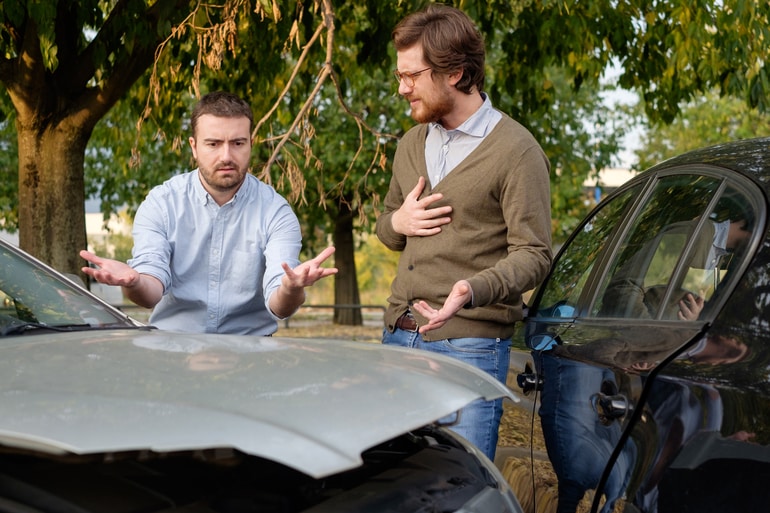
The civil justice system in the United States has specific laws that vary from state-to-state, including the way fault and damages are apportioned in personal injury cases.
South Carolina, like the majority of states, has a modified comparative negligence or comparative fault system. In a nutshell, a comparative negligence system allows a victim to obtain compensation for injuries and financial losses, even if he or she is partially to blame for what happened, subject to certain limitations.
The attorneys at Joye Law Firm help people who have been injured as a result of others negligence seek compensation for their injuries and losses. Founded in 1968, Joye Law Firm has offices in Columbia, Charleston, North Charleston, Clinton, Summerville, and Myrtle Beach to serve accident victims and their families. Our personal injury firm can help protect your rights to the compensation that you need and deserve.
Call (803) 393-7891 or contact us online to schedule a free consultation to discuss your case in more detail.
What is Comparative Negligence?
Comparative fault allows for compensation to be awarded in proportion to the negligence of the parties involved. Modified comparative fault systems again vary by state.
South Carolina is one of the states that essentially has a 51% cutoff rule. Under the South Carolina comparative negligence law, a victim can recover money for accident-related injuries as long as he or she was less than 51 percent responsible for the accident. Insurance adjusters representing those involved in an accident assign fault to each side in an accident. If a case goes to trial, then the jury determines the degree of fault.
If you are partially at-fault and are awarded damages by a jury, then your award would be reduced by your degree of fault.
How Can It Affect My Compensation?
When a South Carolina jury decides a personal injury case, comparative negligence means that the compensation awarded in a civil action is subject to a reduction in proportion to a plaintiff’s negligence.
For example, assume a judge or jury awards a victim $100,000 in a personal injury case for which he or she is found to have been 25% at fault. Under South Carolina comparative negligence law, a state court reduces the verdict by $25,000, resulting in a $75,000 recovery. In the same scenario, if the plaintiff was deemed 50 percent at fault, he or she would be entitled to recover $50,000. However, if the jury found the person to be 51 percent or more liable, the person would not be entitled to any compensation.
Insurance companies and defense lawyers are likely to argue that your own negligence was a major contributing factor in the accident. Shifting the blame is a standard strategy employed to minimize the insurer’s liability and the amount that the insurer has to pay to resolve a claim.
For this reason, never try to negotiate on your own with the negligent party’s insurance company. Let an experienced personal injury lawyer handle the negotiations on your behalf. Assigning fault is a very fact-sensitive and complicated matter best left to a trained legal professional who can gather all the appropriate evidence and negotiate on your behalf.
How is Comparative Negligence Applied Under SC Law
A plaintiff in a negligence lawsuit in South Carolina can recover money damages so long as his or her negligence is less than 51 percent.
The general principles of a negligence claim are that a defendant owed a duty of care to a plaintiff, the defendant breached that duty of care, that breach of duty caused the plaintiff’s injuries, and those injuries caused damages. South Carolina adopted comparative negligence for motor vehicle accidents in 1962 and applied it to all injury cases in 1988.
Pure vs. Modified Comparative Negligence
A dozen states have pure comparative fault systems in which accident victims may still collect damages, even if he or she is primarily at fault. While pure comparative fault does allow a victim to recover damages regardless of their degree of negligence, the amount of compensation awarded will still be reduced to offset the victim’s percentage of negligence.
The bottom line is that a claim that might have been barred outright in a modified comparative state such as South Carolina could still end up proving to be almost equivalent to a lost cause in a pure comparative state.
Let’s assume a car accident victim files a lawsuit even though it is established that he or she was 90 percent at fault. Assume further that the victim/plaintiff claims damages in the amount of $100,000. Even after theoretically winning the case, the plaintiff would only recover $10,000 with the application of pure comparative negligence. The attorney’s fee and case expenses would be deducted from this amount.
Contact an Experienced Personal Injury Attorney in South Carolina
In any personal injury case, the degrees of fault are major factors in out-of-court settlement negotiations and in cases presented to juries at trial. You need to be especially cautious with anything you say to an insurance company that represents that you were partly responsible for a car crash or other injury. You are usually better served to just let a skilled personal injury lawyer deal with an insurer for you.
Never provide a recorded statement to a claim adjuster or other representative for an insurance company, no matter how harmless they might make it sound. Never accept at face value an insurance adjuster’s assessment of the proportion of fault either. Insurers often try to use formal or informal statements to get accident victims to inadvertently admit to acts of negligence or blame that can be later used to reduce or deny injury claims.
Joye Law Firm, with six offices across South Carolina, offers more than 250 years of combined experience helping personal injury victims pursue personal injury claims. Call (877) 941-2615 or contact us online to schedule a free consultation.







































